Episode 1287: St Pope Leo III
St. Leo III, also known as Pope Leo III, was born in Rome, Italy, in the late 8th century. Little is known about his early life or family background. He became a priest and served in various positions within the Church before being elected as the Pope in December 795.
Shortly after his election, St. Leo III faced significant challenges and opposition. Some members of the Roman nobility were unhappy with his papal authority and attempted to remove him from office. In April 799, a group of conspirators led by a nephew of a former Pope attacked Leo III, leaving him badly beaten and injured. They also attempted to gouge out his eyes and cut out his tongue to prevent him from serving as Pope. Miraculously, Leo III survived the attack but was temporarily driven out of Rome.
The leader of the group was a nephew of a former Pope, named Paschal. The motivations behind the attack are not entirely clear, but there are several theories and historical speculations.
It is believed that Paschal and his cohorts were unhappy with Pope Leo III's policies and authority. Some historians suggest that Paschal may have felt threatened by Leo III's efforts to reform and consolidate the power of the papacy, which could have challenged the influence of certain noble families in Rome.
During a procession in Rome, the conspirators assaulted Pope Leo III, inflicting severe injuries upon him. They physically beat him, attempted to gouge out his eyes, and even sought to cut out his tongue. These brutal acts were likely intended to not only physically harm Leo III but also to permanently impair his ability to fulfill his duties as Pope and communicate effectively.
However, despite the severity of the attack, Pope Leo III miraculously survived. The exact circumstances of his survival are not well-documented, but it is believed that his wounds were treated, and he gradually recovered from the injuries inflicted upon him.
Following the attack, Pope Leo III was temporarily driven out of Rome. He sought refuge and protection from Charlemagne, the King of the Franks and Lombards, who was a powerful figure in Europe at the time. Charlemagne, recognizing Leo III's legitimacy as Pope and sympathetic to his cause, intervened on his behalf and ensured his safety.
Charlemagne convened a council in Rome in 800 to investigate the allegations against Leo III and affirm his innocence. The council declared Leo III innocent and condemned his attackers.
The attack on Pope Leo III is a significant event in his life because it highlights the challenges and opposition he faced during his papacy. It also underscores the complex political dynamics of the time, with various factions vying for power and influence in Rome. Despite the assault, Leo III's resilience and the support he received from Charlemagne allowed him to regain his position as Pope and continue his papal duties until his death in 816.
On December 25, 800, during a Mass held at St. Peter's Basilica in Rome, Pope Leo III crowned Charlemagne as the Holy Roman Emperor. This event had significant political and religious implications, as it marked the revival of the Western Roman Empire and established a close relationship between the papacy and the Carolingian dynasty.
During his papacy, St. Leo III focused on promoting the interests of the Church and strengthening its authority. He revised and organized canon law, issued decrees on various matters, and supported the spread of Christianity in different regions.
St. Leo III is also known for his efforts to beautify Rome and its churches. He initiated the construction of various buildings and monuments, including the Basilica of Saint Paul Outside the Walls, which was damaged by a fire.
St. Leo III died on June 12, 816, in Rome, and was buried in St. Peter's Basilica. He is recognized as a saint in the Roman Catholic Church and is celebrated on June 12 as his feast day.
St. Leo III's papacy had a lasting impact on the Church and the relationship between the papacy and secular powers. His courageous defense of the papal office and his role in crowning Charlemagne as the Holy Roman Emperor contributed to shaping the political and religious landscape of medieval Europe.
Religiously, St. Leo III's action emphasized the Pope's authority over temporal matters and the recognition of the Pope as the ultimate spiritual authority. It solidified the idea that the Pope had the power to confer legitimacy and authority on secular rulers, and that the Church had a role in the governance and administration of the Christian world.
St. Leo III's relationship with Charlemagne continued beyond the coronation. They collaborated closely on various matters, with Charlemagne providing military support and protection to the Pope. This alliance strengthened the position of the papacy and its influence over secular affairs.
St. Leo III's papacy also involved efforts to consolidate and expand the power of the papacy within Rome and its surrounding territories. He initiated various construction projects, including the restoration of churches, the construction of fortifications, and the improvement of infrastructure. These endeavors aimed to assert the papacy's presence and authority in Rome and to establish the Pope as a significant figure in both spiritual and secular matters.
Overall, St. Leo III's papacy represented a significant period in the history of the papacy's relationship with secular powers. His actions, such as the coronation of Charlemagne, emphasized the Pope's authority and role in temporal affairs, and set precedents that would influence the dynamics between the Church and secular rulers in subsequent centuries.
-
 32:19
32:19
David Diga Hernandez
14 days ago $0.22 earnedHow to Eliminate Spiritual Laziness Once and For All
10.3K17 -
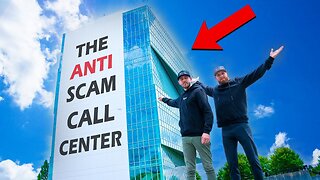 23:19
23:19
Scammer Payback
1 day agoWe Created the First Ever 𝗔𝗡𝗧𝗜-𝗦𝗖𝗔𝗠 Call Center
112K258 -
 7:01
7:01
Dr. Eric Berg
14 hours agoIs This Why You’re Stressed or Not Sleeping?
26.5K20 -
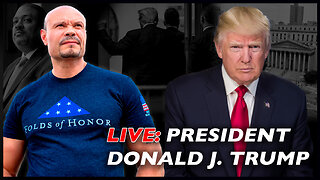 39:46
39:46
The Dan Bongino Show
10 hours agoEXCLUSIVE: President Trump Slams Sham Trial (Ep. 2260) - 05/30/2024
443K1.75K -
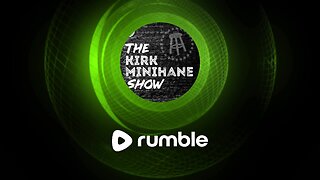 2:34:42
2:34:42
The Kirk Minihane Show
13 hours agoGaming with Gus
43K -
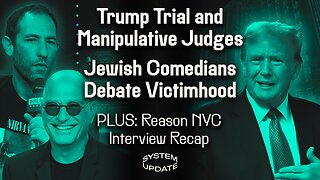 1:21:56
1:21:56
Glenn Greenwald
12 hours agoTrump Trial: How Judges Manipulate Verdicts; Anti-Woke Jewish Comedians Debate if They’re an Endangered Victim Group; PLUS: Reason Interview Recap | SYSTEM UPDATE #274
91.7K139 -
 1:18:15
1:18:15
Kim Iversen
10 hours agoBIG WIN! WHO Pandemic Treaty Is DOA | Google, Meta, X Attend “Censorship Symposium” To Combat Anti-Semitism
98.4K199 -
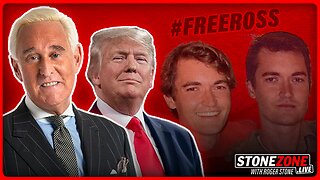 58:33
58:33
The StoneZONE with Roger Stone
13 hours agoLife in Prison For Starting a Website? Trump Pledges to FREE Ross Ulbricht - The StoneZONE
73.1K9 -
 1:45:32
1:45:32
The Quartering
14 hours agoTrump Judge Makes HUGE Mistake, Biden's Gaza Disaster, Brutal New Poll Data
116K57 -
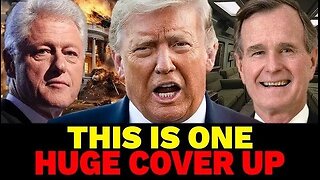 46:25
46:25
Stephen Gardner
11 hours agoCIA DARK SECRET EXPOSED | Whistleblower Details COVERT PROGRAMS w/ Dr. Steven Greer
87.2K26